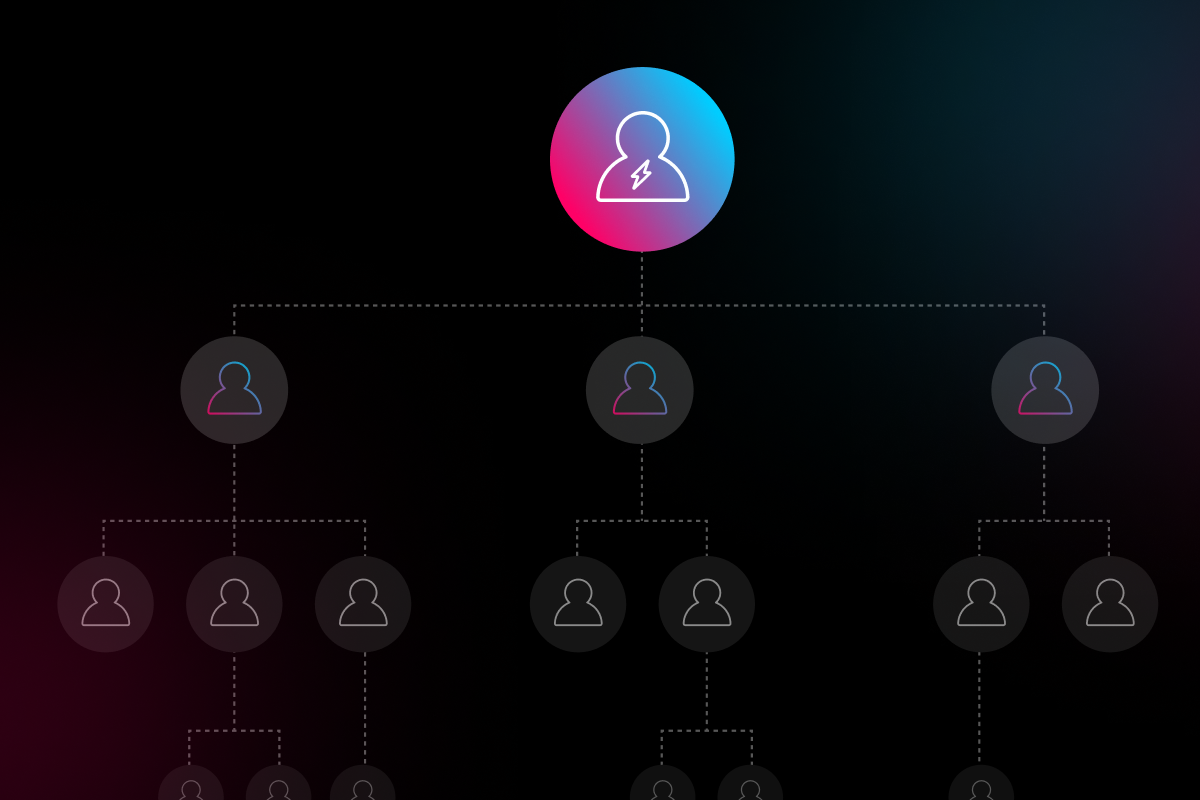
Managing an enterprise’s IT is no small feat. At the very least, those responsible must develop comprehensive strategies that address security, privacy, and regulatory compliance. However, to extract maximum value from IT investments, businesses must go even further. In enterprise settings, IT managers are tasked with managing technology in a way that adds value to the company, from enhancing customer satisfaction to streamlining business operations.
To ensure that these tasks are accomplished efficiently, several enterprise IT management frameworks have been developed to provide leaders with the tools, resources, and techniques they need. In this post, we’ll share everything you need to know for successful enterprise IT management.
What Is Enterprise IT Management (EITM)?
Enterprise IT management (EITM) refers to the process of leveraging IT to boost business value. Rather than day-to-day management of the various platforms and solutions used by employees, EITM is focused exclusively on activities that bring value to the business.
Whether handled internally or outsourced to an external specialist, enterprise IT management typically involves developing and implementing strategies to achieve operational efficiencies. With so many IT resources in use in the average enterprise, this high level, strategic approach is needed to ensure the right resources are in place, and to guarantee that they are being used effectively.
Types of Enterprise IT Management Software
IT management software solutions serve as an infrastructure control center for large and medium-sized businesses. These platforms enable IT teams to oversee organization-wide endpoints and communicate with the network for a wide range of tasks. They also grant remote access to administrator and employee platforms for security settings, software asset management, disaster recovery, and system setup and configuration.
Some enterprise IT management software helps improve IT processes by leveraging data insights from intelligence reporting and asset tracking. Enterprise IT management software comes in various forms, but it usually offers the following capabilities:
- Management of business systems, applications, and networks
- Management of virtual machines and resources
- Monitoring or logging of abnormalities within IT systems
- Assessment of systems for security and performance optimization
How to Choose Enterprise IT Management Software
There are several types of enterprise IT management software on the market. So, how do you choose one that suits your organization best? Here is an outline of some factors you should keep in mind:
- Business goals: Before selecting an enterprise IT solution, you should understand what your goals are. This allows you to research possible enterprise solutions that can help you meet those goals in a cost-effective way.
- Users: Identify who your users are and ensure they will have the proper resources to guarantee a smooth adoption.
- Scalability: Enterprise IT management solutions that can scale with your business are the preferred option for most organizations.
- Security: Ensure that the enterprise IT management software you choose offers the level of security required in your organization, and will keep your critical data safe.
What are Enterprise Managed IT Services?
Enterprise Managed IT Services are an alternative to managing this responsibility in-house. By outsourcing to an external provider, enterprises can access expert enterprise IT management services that boosts business value.
Managed IT service providers can help your organization plan, design, and deliver enterprise IT services to meet business goals. This approach positions technology as an essential means of providing and obtaining value, with the external IT provider taking on the responsibility while minimizing the associated costs and risks.
Enterprise IT service management can encompass the entire life cycle of a given service, starting with the original strategy to design and transition into its operation. To ensure that IT services are sustainable, enterprise IT service management establishes long term processes and practices, as well as a plan for continual review and iteration.
6 Benefits of Enterprise Managed IT Services
Simply subscribing to various IT solutions doesn’t guarantee your business or employees will be able to access their full range of benefits. By working with enterprise managed IT services, you will receive the guidance required to get the maximum value from the resources available to you.
Here is an outline of other benefits of working with enterprise managed IT service providers.
1. Access to professional expertise
By partnering with an enterprise managed IT solution, you will have access to an IT team with the relevant qualifications, training, experience, and certification. These experts will be able to answer your questions and provide solutions whenever the need arises.
2. Reduction in security risk
Outsourcing IT support helps reduce security risks. You will have access to IT professionals who are conversant with the ins and outs of your industry as well as compliance and security concerns.
3. More time to focus on your business
By outsourcing your enterprise IT management, your team will have more time to focus their attention on other activities that help increase your bottom line.
4. Faster response times
In today’s hypercompetitive world, employees can’t be slowed down by technical issues. When you partner with an enterprise managed IT provider, you will have access to a reliable support service that keeps your team productive at all times.
5. Reduce IT operations costs
Running an in-house IT team means that you have significant costs associated with salaries, insurance, and office upkeep. Plus, training your IT personnel involves significant investment. By outsourcing IT services, you reduce the significant capital expenditure that comes with in-house enterprise IT management.
6. Data compliance support
Most businesses are obligated to comply with strict regulations such as HIPAA and PCI DSS for integration with their IT initiatives. These standards spell out specific rules regarding privacy, financial services, and reporting security breaches, which enterprise managed IT providers will be familiar with.
Electric Powers Managed IT
If you’re ready to get strategic with your enterprise IT management, Electric can help. Our managed IT offering supports your key operations to run seamlessly, while saving your internal team valuable time and resources. Contact us today to learn more about how we can power your IT.



